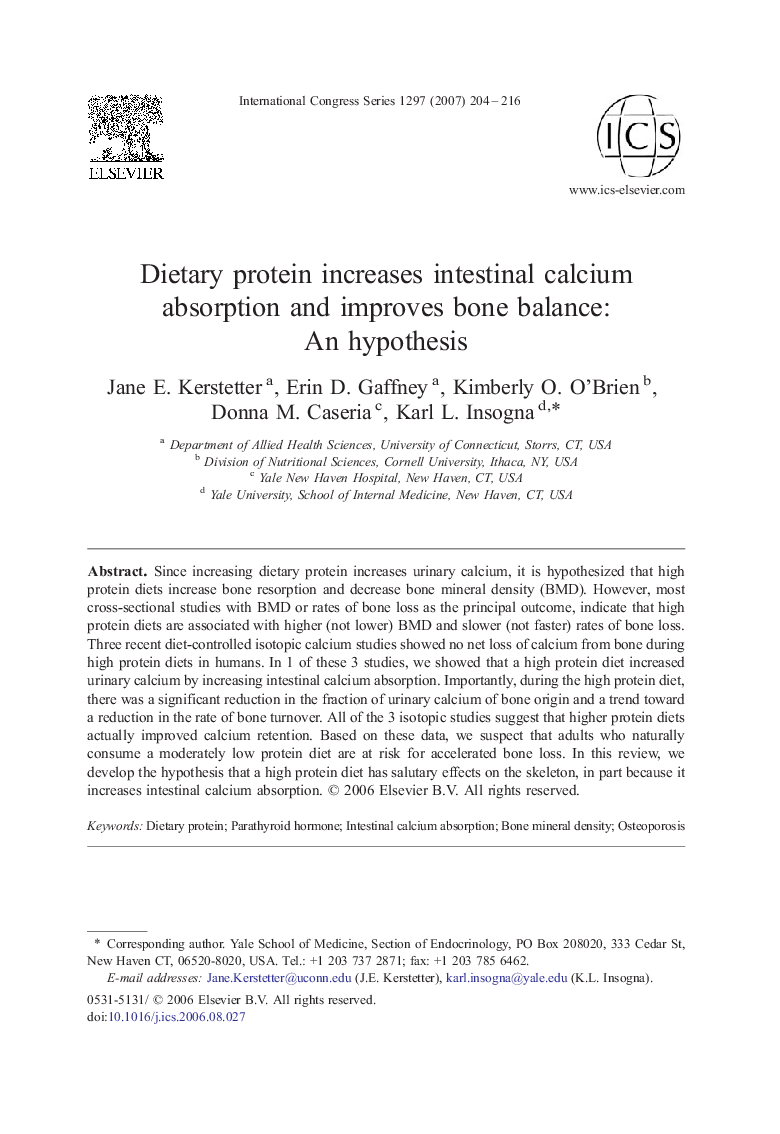| Article ID | Journal | Published Year | Pages | File Type |
|---|---|---|---|---|
| 2576838 | International Congress Series | 2007 | 13 Pages |
Since increasing dietary protein increases urinary calcium, it is hypothesized that high protein diets increase bone resorption and decrease bone mineral density (BMD). However, most cross-sectional studies with BMD or rates of bone loss as the principal outcome, indicate that high protein diets are associated with higher (not lower) BMD and slower (not faster) rates of bone loss. Three recent diet-controlled isotopic calcium studies showed no net loss of calcium from bone during high protein diets in humans. In 1 of these 3 studies, we showed that a high protein diet increased urinary calcium by increasing intestinal calcium absorption. Importantly, during the high protein diet, there was a significant reduction in the fraction of urinary calcium of bone origin and a trend toward a reduction in the rate of bone turnover. All of the 3 isotopic studies suggest that higher protein diets actually improved calcium retention. Based on these data, we suspect that adults who naturally consume a moderately low protein diet are at risk for accelerated bone loss. In this review, we develop the hypothesis that a high protein diet has salutary effects on the skeleton, in part because it increases intestinal calcium absorption.
